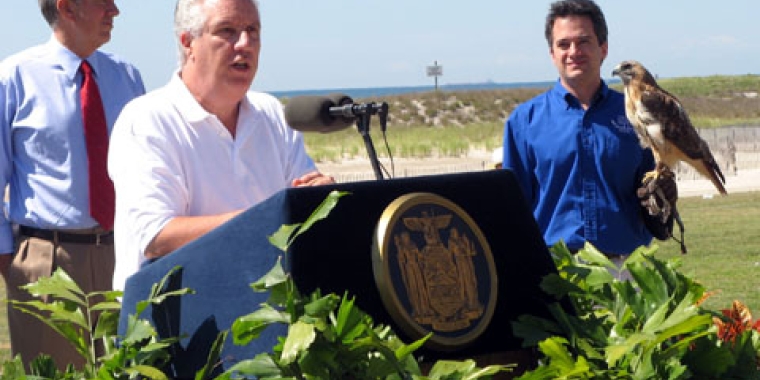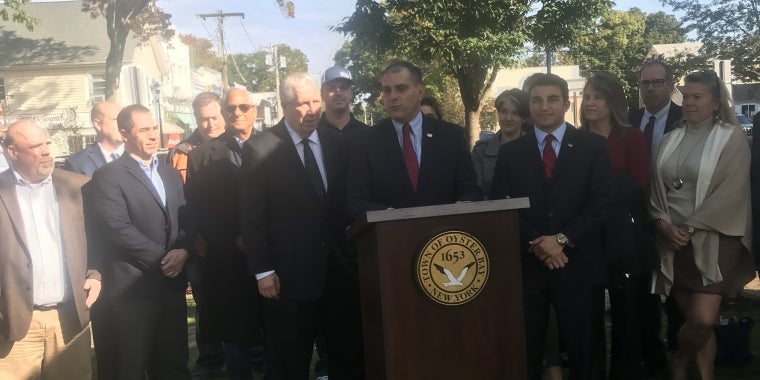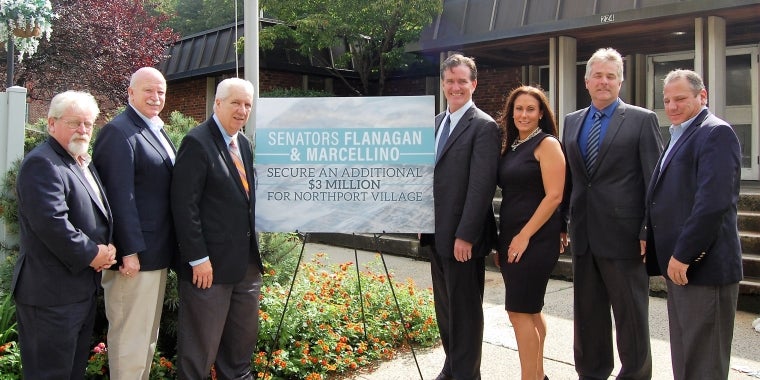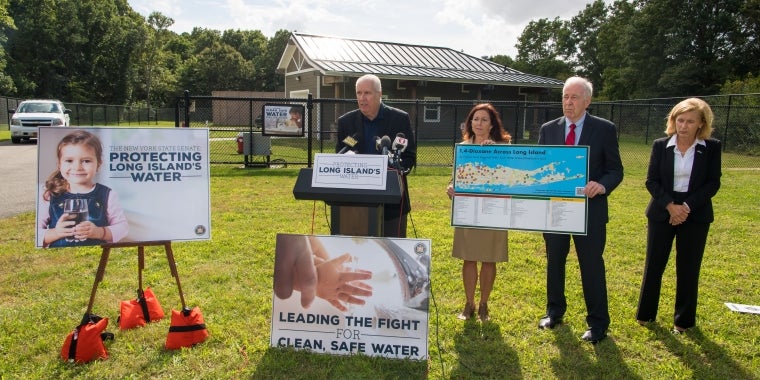
Senator Marcellino Joins Governor Pataki In Creating New York Ocean And Great Lakes Ecosystem Conservation Council

Senator Carl L. Marcellino, Chairman of the Senate Environmental Conservation Committee today announced that Governor Partake signed legislation to create a new council that will coordinate State efforts to protect our ocean and the Great Lakes resources and help to ensure these important waters are clean and healthy for years to come. The Governor also announced a $3 million appropriation for the council.
"Our oceans and the Great Lakes play a critical role in our daily lives, and we must be vigilant in our efforts to protect and restore these vital resources," Governor Pataki said. "The council will help us develop and implement effective strategies to address the many challenges facing these waters. By focusing on a broad range of issues, including the ecology of marine habitats and their importance of these waters for recreation, fishing and various industries, we will be able to promote better stewardship and management of these valuable waters and ecosystems."
"Working together as a environmental community will enable us to establish effective programs and coordinate resources to achieve the restoration of the Great Lakes and protection of the Atlantic Ocean. This will help ensure that future generations will enjoy clean coastal waters and bountiful and healthy natural resources," said Senator Carl L. Marcellino, Chairman of the Senate Environmental Conservation Committee.
"The New York Ocean and Great Lakes Ecosystem Conservation Act is a pioneering piece of ocean legislation that will help usher in a new era for ocean and coastal resources protection," says Friends of the Bay Executive Director Kyle Rabin. "It is a timely and important step to protect these critical environmental and economic resources. The extraordinary leadership and cooperation illustrated by the Governor and key members of the State Senate and Assembly will serve as a model to future environmental legislative efforts."
Under legislation the State will establish the New York Ocean and Great Lakes Ecosystem Conservation Council to coordinate programs and activities that help to protect and restore the State’s coastal ecosystems. The nine-member council will work with various stakeholders to develop policies and principles to govern these coastal resources and implement effective management strategies.
The council will be chaired by the Department of Environmental Conservation (DEC) Commissioner, with the deputy Secretary of State for Coastal Resources serving as executive director. Members will include: the commissioner of the Department of Agriculture and Markets; the commissioner of Economic Development; the commissioner of the Office of General Services (OGS); the DEC commissioner; the Secretary of State; the commissioner of the Office of Parks, Recreation and Historic Preservation (OPRHP); the commissioner of the Department of Transportation (DOT); the president of the New York State Energy Research and Development Authority (NYSERDA); and the chancellor of the State University of New York (SUNY).
Among the responsibilities of the council are: - promoting greater understanding, protection, restoration, and
enhancement of New York’s ocean and Great Lakes ecosystems, as well as
sustainable economic development and job creation;
developing policies to guide agency programs and activities that
affect our coastal ecosystems, and coordinating agency activities to
integrate ecosystem-based management and build on existing laws and programs;
encouraging scientific research and information sharing that will
help inform and enhance ecosystem-based management decisions and capabilities;
establishing and/or strengthening regional and federal coordination and partnerships to address complex coastal resource issues that extend across boundaries;
integrating New York’s private and public academia, research, and not-for-profit institutions more effectively in developing and advancing coastal-based ecosystem management; andensuring that community needs and aspirations are accommodated.
The council will deliver a report to the Governor and State Legislature no later than November 1, 2008. This report will demonstrate that improvements can be accomplished in the eastern Lake Ontario and Long Island Great South Bay coastal ecosystems; define executive and legislative actions necessary to integrate ecosystem-based management with existing
programs; include a plan, schedule and funding opportunities for implementation of executive actions; create an ocean and coastal resources atlas; establish a research agenda that identifies priority issues in need of further research; identify opportunities for regional ecosystem-based management with neighboring states and the federal government; and recommend actions to preserve, restore, and protect submerged aquatic vegetation populations and meadows.
David J. Miller, executive director of Audubon New York, said, "Today is a great day for the Great Lakes and ocean ecosystems, and we have Governor Partake, Senators Johnson and Marcellino, and Assemblyman DiNapoli to thank for their efforts to ensure their protection for future generations. Millions of State residents depend on the ocean and Great Lakes ecosystems everyday for agriculture, recreation, and for numerous other uses that are crucial for the regional economies and quality of life. In addition, over 350 species of birds and many fish and other wildlife species rely on clean water in the Great Lakes and ocean for nesting, breeding and feeding. This Act will ensure that these irreplaceable resources are sustained for our children and grandchildren."
New York State is the second largest coastal state in the nation, with more than 3,200 miles of ocean, tidal and Great Lakes coastline. Approximately 80 percent of New Yorkers live in the State’s 26 coastal counties.
The State’s coastal areas, rivers, lakes, and estuaries feature more than 800 public beaches, parks and recreational sites, and more than 700 miles of scenic byways. These water resources serve an essential role in promoting tourism, industry, jobs, and economic development, as well as being home to critical ecosystems.
This new law takes effect immediately.



